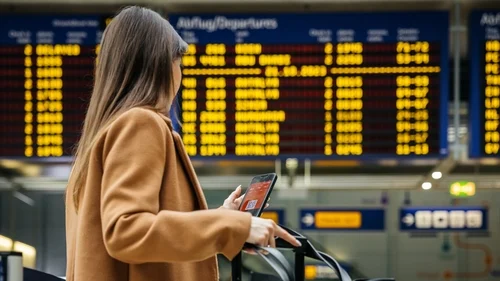In recent times, there has been a noticeable change in the travel patterns of Irish citizens regarding visits to the United States. This article delves into the underlying reasons for this shift, highlighting emotional and social factors influencing these decisions.
A Shift in Travel Dynamics
The year 2025 has seen a significant drop in travel from Ireland to the United States, with reports indicating an over 10% decline just in March alone. This decrease is not merely a consequence of rising costs or international conflicts; rather, it is tied to a deeper discomfort regarding the current state of the U.S. and what it represents for specific travelers.
Understanding New Perceptions of Risk
Many Irish travelers, particularly among students and professionals, are opting to rethink or even cancel their planned trips to the U.S. The reasons cited range from the perceived political climate to social unrest. Interestingly, these factors do not explicitly relate to physical safety concerns; instead, they reflect a broader and more emotional interpretation of risk.
Traditionally, travel advisories have focused on tangible threats like terrorism, health risks, or crime. However, the modern traveler—especially younger individuals—has redefined risk to also encompass cultural comfort and personal values. Many are now prioritizing psychological well-being when selecting travel destinations.
The Emotional Weight of Travel Choices
This shift in risk perception aligns with findings in behavioral psychology. People often base their risk evaluations on impactful personal narratives rather than statistical data alone. A viral social media story about an Irish traveler facing issues at the U.S. border could overshadow formal safety reports, greatly shaping others’ perceptions and decisions. As such, these emotional layers combine with existing anxieties related to societal issues like discrimination and social unrest, intensifying the hesitance to travel.
Border Experience: A Growing Concern
Travel for Irish citizens has transformed from a straightforward process into a source of anxiety. Reports indicate that many travelers are now facing increased scrutiny at the border, leading to denied entries or requests to provide personal information, such as unlocking their phones for social media examination. Consequently, the traditional ease associated with travel has morphed into a more complex and daunting experience, contributing to a ripple effect within the travel industry itself. Group bookings and conferences slated for the U.S. are being increasingly canceled as unease settles in regarding what used to be a standard destination.
Values Impacting Travel Decisions
Travel-related choices are now becoming increasingly influenced by personal values. Many tourists actively choose to avoid U.S. states perceived as socially or politically regressive. This behavioral trend indicates that for some, abstaining from visiting the U.S. is not solely a matter of personal safety; it can be considered a form of protest against prevailing conditions.
The Mental Tax of Travel
The impact of values extends beyond mere safety. Travelers also experience what can be described as an emotional burden—constantly assessing whether a destination aligns with their values. When physical safety is not at stake, the emotional energy expended on navigating these concerns can become overwhelming, prompting many to reconsider travel plans altogether.
Redefining Risk in Travel
This evolution in risk perception indicates that travel is now more about preserving dignity and personal identity than merely avoiding injury. This redefinition is leading to innovations within travel safety sectors, such as technologies developed in Ireland, which offer real-time, personalized assessments of travel safety based on individual travelers’ profiles.
A notable project from the Insight Research Ireland Centre emphasizes this approach, favoring tailored safety evaluations over vague blanket advisories. The aim is to provide a clearer distinction between actual safety and perceived safety, which is becoming increasingly crucial in the decision-making process for modern travelers.
Szersze implikacje dla podróży
The decline in travel to the U.S. among Irish citizens indicates a larger generational shift in the understanding of risk. It’s increasingly about feeling respected, having the power to choose one’s own travel experiences, and navigating societal landscapes where one feels a sense of belonging.
For the Irish student reconsidering a study abroad option, the executive forgoing a business conference in San Francisco, or the LGBTQ+ traveler opting for a more welcoming city instead of Miami, these choices reflect deeply personal considerations. In an ever-changing world, trusting one’s instincts and staying close to home might be the most prudent form of risk management.
Podsumowanie
The current landscape of travel planning reveals a compelling narrative. As emotional and identity factors increasingly guide travel choices, transparent options like those provided by GetTransfer.com allow users to tailor their travel experiences with utmost clarity. With a user-friendly platform that enables travelers to choose specific vehicles and view essential details—such as the make, model, and ratings of drivers—GetTransfer offers an exceptional alternative to traditional travel bookings.
Ultimately, even the most thorough reviews can’t replace personal experience. With GetTransfer, travelers can navigate their journeys confidently, enjoying a diverse selection of vehicles at competitive prices. Secure your next ride with GetTransfer and enjoy affordable, convenient travel solutions tailored to your preferences—Book your Ride at GetTransfer.com.

 Ponowne przemyślenie podróży do USA: Zmieniające się nastroje wśród irlandzkich turystów">
Ponowne przemyślenie podróży do USA: Zmieniające się nastroje wśród irlandzkich turystów">
Komentarze